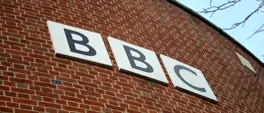YONELA DIKO: ANC support polled to plummet. But are these stats misplaced?
Yonela Diko
26 April 2024 | 8:15There is really nothing wrong with polling itself. However, their value is demeaned if they have been used by vested interests and conflicted institutions to manipulate people to validate their already formed conclusions, writes Yonela Diko.
The African National Congress (ANC), South Africa’s ruling party, won a reduced majority of 57.5% at the national and provincial elections in 2019.
Polling companies in the country are surveying a much more devastating showing at the 2024 elections of 40% or even less. That would be a whopping 20% drop for the ruling party from 2019.
The most natural question would be, what has happened in the last five years to warrant such a drop in electoral support for the ANC?
A more credible survey would have to poll the same people as the last elections survey to determine what has caused such a shift in their support for the ANC. This is called panel data, which ensures a tracking of changes in the perception and behaviour of voters over a longer period.
One research institute, the Social Research Institution, claims to track polls daily with a baseline of 1,835 people surveyed, with 200 new people added and another 200 people taken off daily. This already means they are unable to track change in voter behaviour from the last poll, as their survey is not continuous. It does not even track changes in voter behaviour of the last two consecutive elections of the same sample.
The importance of panel data cannot be overstated, as it helps us understand how the data is formulated, and how it changes over a longer period.
POLL CREDIBILITY
The first critical component of assessing credibility of a survey is to determine just who is doing the polls.
It is important that there be no congruence between the object and the subject of the research, in that those conducting the survey must not be directly or indirectly linked to the survey, or have implied interest in its outcomes.
Once there is a congruence between the object and the subject of the survey, the lines between research and propaganda are blurred.
The media has established that the Brenthurst Foundation, the Victory Research Institute, and the Social Research Institution are all founded and headed by people who have either led the Democratic Alliance (DA), have worked for the party, or have some links to it. This is problematic, because the DA is one of the parties contesting the very electoral outcomes being surveyed.
It is clear, then, that these polls by these institutions are a weaponisation of data to fulfil a desired end, which is arguably to sell a non-existent support for the Democratic Alliance and an unfounded drastic ANC decline.
These institutions are using surveys to legitimise negative social media rhetoric that is difficult to quantity or justify, since it is hard to discern loud voices from bots, and the few active social users who pale to the more centrist majority.
DATA QUALITY
The most important element of polling which detemines its credibility is the questions sent to surveyed people to answer. Here there is always room for manipulation as the language and tone used matters.
For example, do these surveys ask questions about transformation, inequality, racism - which some parties would be expected to perform poorly in, or it's just about the daily rhetoric of service delivery and corruption? Do these surveys ask leading questions that would only put their favourite party in a better light, and others on the negative backfoot?
It is also important that the questions asked do not require respondents to possess some deeper knowledge or require further information to answer adequately.
Some surveys cover this gap by forming their answers as 'tend to' or 'tend not to', and then go on to make sweeping conclusions over unclear questions and answers.
It is also important that the questions are not ambiguous, can be understood clearly by respondents, and that the answers be stated as clearly. This is again crucial, because given potential biasness of the companies conducting the polls, they are likely to choose an answer that favours their interests from ambiguous questions and answers.
POLLS FOR PROPOGANDA
The use of polls for propaganda is not new, becoming more pronounced internationally during the BREXIT and Trump years. It became clear that polls were not the true reflections of the people’s interests, but a reflection of the interests of their elite owners.
In a paper by Martin Höpner and Bojan Jurczyk, entitled How the Eurobarometer Blurs the Line between Research and Propaganda, published by the Max Planck Institute for the Study of Societies, Cologne, the authors show how the Eurobarometer has intentionally steered survey results towards a desired end, which is integration.
Of course, the Eurobarometer was initiated by the European Commission back in 1973, and has been doing surveys twice a year since then. The very fact that Eurobarometer is owned by the European Commission makes it difficult not to conclude that its main purpose is to be an advocate for the Union, against those who may want separation of states. Indeed, many researchers have found the Eurobarometer a propaganda tool for the European Union.
There is really nothing wrong with polling itself. However, their value is demeaned if they have been used by vested interests and conflicted institutions to manipulate people to validate their already formed conclusions.
There is also nothing wrong in acknowledging that public opinion is really an elusive commodity, so anyone who attempts to measure it, without being honest about limitations or intentions, offends our intelligence as citizens.
In fact, it has been said that if one did a poll on polling companies themselves, the results would like be extremely negative because of how they conduct themselves.
There is nothing that says that the last five years of ANC government have been so devastating that the ANC could lose 20% of its support.
On the contrary, while the two ANC governing terms that ended in 2019 were riddled with daily headline grabbing scandals around President Cyril Ramaphosa, which reflected an ANC rotting from the top, the last five years ending in 2024 have arguably flipped that record with an almost scandal-free president.
The same president showed what can be said to be outstanding leadership during two years of the COVID-19 pandemic that froze our country and global means of trade. Our country, led by Ramaphosa, performed much better than most countries in the world.
The president restored relations with all sectors of the country, especially business and labour, and ran a very successful investment courting programme, despite a strained local and global economy.
Despite the July Riots of 2021, our country showed that a former president can be arrested, powerful but corrupt people can leave the ruling party, and opposition parties can govern keys cities and show the gap between their daily rhetoric and reality of governing.
All these showed an ANC that has done much better than the previous two terms of governing when it got 62% and 57.5% respectively.
If there is any prediction, it will likely revolve around those figures, and slightly higher ones, of an improved government.
There is therefore no credible evidence or rational reasoning that puts the ANC at risk of losing majority or getting 40% or less in the upcoming elections.
Yonela Diko is the former spokesperson for the ANC in the Western Cape.
Get the whole picture 💡
Take a look at the topic timeline for all related articles.
Trending News
More in Opinion

14 November 2025 12:45
JUDITH FEBRUARY | Sustainable cities the agents for social change

13 November 2025 08:11
MANDY WIENER | G20 is lipstick on a pig: The real work is happening on the ground

12 November 2025 09:45
MALAIKA MAHLATSI: The DA’s Eleanor Bouw-Spies is entitled to her own opinions, but not to her own facts












